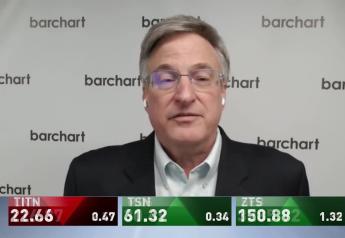Farmer Shares Top 10 Considerations With Carbon Markets
Answers to Your Top Questions About Carbon Markets
After participating in four carbon market pilot programs in the past two years, Kyle Mehmen, general manager at MBS Family Farms in Iowa, says he has learned a lot about the opportunity—and perhaps even more about what not to do.
“This market is developing so quickly I can't say that we have everything figured out,” he shared with AgDay Host and Farm Journal Editor, Clinton Griffiths, during a webinar hosted on Tuesday.
While carbon markets are complex and there are still standards being defined, in Mehmen’s view, now is the time for farmers to ask questions and get engaged with how they can participate in carbon markets.
The first two questions he thinks farmers should ask themselves are:
- Is my house in order enough so my data can be applied across a platform?
- Am I interested in a company that is more of a hub or am I more interested in looking at bolt-on companies with additional services, such as soil sampling or data entry?
“One thing incomplete in our data was our tillage records. We no-till. So, we had to change our planting records to no-till because we didn’t have a recorded tillage pass,” he says.
From his experience with different types of markets, he says generally there are two paths for farmer participation.
“It does seem the easier it is to participate in a program, the less it pays. And the more work you have to put into a program, the greater the financial reward,” he says.
His first interest in carbon markets was when corn was $3.20 a bushel and he was exploring ways to diversify the family’s farm income. And while commodity prices have rebounded, he sees value in farmers getting involved in an issue that has a lot of people in agreement for the good it can do.
“It’s wise for growers in general to dip their toe in this market,” he says. “This will be something we want to understand ahead of time rather than play catch up. As farmers, we should think of ourselves as wanting to become the supplier of choice.”
In encouraging farmers to see opportunity and not default to cynicism, he thinks the biggest gains come from adopting practices that you are interested in for reasons in addition to the carbon potential.
“I will say probably the most common question I get is if there’s a fit for a farm that has already been doing some of these practices for a long time,” he says. “Even if you’ve been implementing a practice for 40 years, there’s likely another piece of the puzzle that’s a change practice.”
As an example, he shares long-time no-till farmers may adopt variable rate nitrogen as a change practice to go in concert with their no-till.







